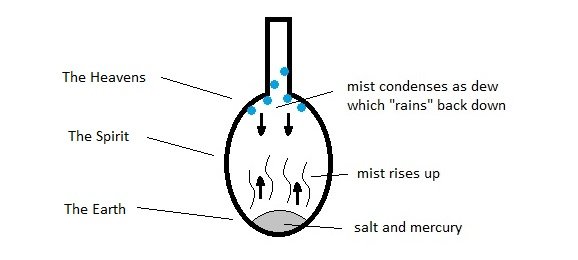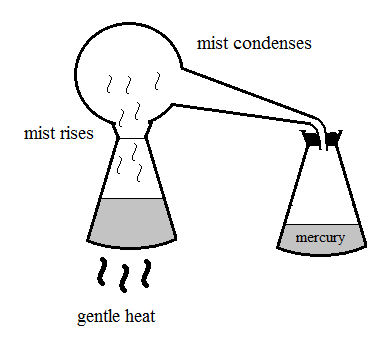@Lapidem : Was your your response supposed to be related to my posting of yesterday? I wasn't talking about the separation of waters, as in Genesis 1:6 - 8. I was talking about the first paragraph of the Bible, Genesis 1:1 - 2. The first paragraph clearly implies that the God of the Bible is not omnipotent. That's very significant. I don't see how a discussion of the "separation of the waters" changes that inference. The author of the fairy tale was probably drawing on the broadly popular tradition of the ancient world that the universe was created from a preexisting chaos. It was just a widely held belief at the time. Not a fact, not true-- just a popular story.
It's interesting that you would say that "Genesis is not meant to be literal." That would certainly be news to a great many Christian fundamentalists who insist that every single word of the Bible is the word of God and is therefore absolutely completely totally 100% true. Maybe you don't take it literally, but there are plenty of people who call themselves Christians who do.
The description of the separation of the waters is quite interesting. I would say that part of the fairy tale probably has less to do with alchemy than it does with Egyptian mythology. Exodus 12:40 says that the Israelites were in Egypt for 430 years. That would have been plenty of time for them to have absorbed many of the religious teachings and practices of the Egyptians. Circumcision, for example, was practiced in ancient Egypt by the Sixth Dynasty-- before 2300 BCE. That is at least 1500 years before any part of the Bible was written. The cult of Osiris was based on the idea of the resurrection of the dead, a judgment of the souls of the dead, and eternal life for those who pass that judgment. By the time of the Middle Kingdom the cult of Osiris had become popular throughout Egypt. And there were several myths of creation popular in ancient Egypt, including that of Heliopolis. In that tale the universe began as a giant, lifeless ocean of water. The "separation of the waters," in all likelihood, was an attempt by the author to account for the earth's atmosphere by having God create a gap in the waters that filled the universe. Here's how Genesis 1:6 - 7 says it:
And God said, "Let there be a firmament in the midst of the waters, and let it separate the waters from the waters." And God made the firmament and separated the waters which were under the firmament from the waters which were above the firmament. And it was so. And God called the firmament Heaven.
(Genesis 1:6 - 8, RSV)
It sure sounds like the universe is pictured as being filled with water, just as in the creation myth of Heliopolis. According to Genesis there are waters "above" Heaven. Really? Where, exactly? Your diagram shows the waters being below Heaven, not above. The universe is predominantly filled with the vacuum of intergalactic space, not water. The people of the time of the writing of the Bible could not possibly have understood the concept of a vacuum. Lucretius is famous for having said that there must be a void in things because if there were not, then nothing could move. That is absolutely correct-- but Lucretius was writing hundreds of years after the writing of the creation fairy tale in the Bible.
There are a great many people who call themselves "creationists" who believe that the story of the creation in the Bible is absolutely correct. As I mentioned in my previous post, the Presbyterian church appointed a special commission of theologians to determine whether the creation story in the Bible is absolutely correct, given all that is now known through modern science. They concluded that yes indeed, the Bible's story of creation is completely true. The only point they couldn't resolve was the length of a day. That is, the official position of the Presbyterian church is that the story of creation in the book of Genesis is absolutely correct, as written. Presbyterians take that story very literally, even if you don't.



